Podcast: Play in new window | Download (Duration: 28:21 — 19.5MB) | Embed
Subscribe: Apple Podcasts | Spotify | Amazon Music | Android | Pandora | iHeartRadio | JioSaavn | Podchaser | Gaana | Podcast Index | Email | TuneIn | Deezer | Anghami | RSS | More
 Deepening Spiritual Foundations – “What am I to do?” The Discernment of God’s Will in Everyday Decisions with Fr. Timothy Gallagher
Deepening Spiritual Foundations – “What am I to do?” The Discernment of God’s Will in Everyday Decisions with Fr. Timothy Gallagher
Fr. Timothy Gallagher explains how a person grows ready to recognize God’s direction in meaningful life choices. Once someone knows they are profoundly loved by God, a new interior posture can form—one that mirrors Mary’s “let it be done unto me.” Fr. Gallagher shows that this readiness is ultimately a grace rather than an achievement of sheer effort. He describes how confession, healing from sin, and even addressing emotional wounds can open the heart, remove inner barriers, and create room for freedom. He also highlights stories of individuals who discovered this freedom through forgiveness, reconciliation, and the experience of being cherished by Christ even in their weaknesses. No past mistake can ever block God’s ability to bring about a greater good in one’s life.
He then turns to the concrete spiritual practices that nurture this receptive posture. At the center is the Eucharist—daily Mass, time before the tabernacle, and quiet moments in adoration—which draw the soul close to Christ, the true light for any crossroads. Fr. Gallagher notes that many who undergo significant discernment naturally find themselves spending more time before the Blessed Sacrament, where their prayers gradually shift from anxious requests for answers to a peaceful willingness to follow God’s direction.
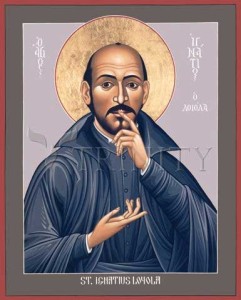 Discerning Hearts Reflection Questions:
Discerning Hearts Reflection Questions:
- When have I most clearly experienced God’s personal love for me, and how might that shape my readiness to receive His direction?
- What areas of my life still need healing—spiritual or emotional—so that I can stand before God with greater freedom?
- How open am I right now to saying, with sincerity, “Let it be done according to Your will”?
- Are there past decisions or failures I still fear have closed off God’s plan, and how does His mercy invite me to see these differently?
- How regularly do I seek the grace of the sacraments, especially confession, as part of my discernment?
- What role does the Eucharist currently play in my efforts to understand God’s direction for my life?
- When I pray, do I find myself clinging to my preferred outcome, or am I allowing God to form a more trusting posture within me?
- Who has God placed in my life—pastors, spiritual friends, directors—who can support me in recognizing His voice?
- What patterns of prayer, silence, or Scripture reading might I adopt to make my heart more attentive to God?
- Where do I sense God gradually transforming my concerns into a deeper trust in His guidance?
From The Discernment of God’s Will in Everyday Decisions:
“Three Times in which a Sound and Good Choice May Be Made
The first time is when God Our Lord so moves and attracts the will that, without doubting or being able to doubt, the devout soul follows what is shown to it, as St. Paul and St. Matthew did in following Christ our Lord.
The second time is when sufficient clarity and understanding is received through experience of consolations and desolations, and through experience of discernment of different spirits.
The third time is one of tranquility, when one considers first for what purpose man is born, that is, to praise God our Lord and save his soul, and, desiring this, chooses as a means to this end some life or state within the bounds of the Church, so that he may be helped in the service of his Lord and the salvation of his soul. I said a tranquil time, that is, when the soul is not agitated by different spirits, and uses its natural powers freely and tranquilly.
If the choice is not made in the first or second time, two ways of making it in this third time are given below.”
Father Timothy M. Gallagher, O.M.V., was ordained in 1979 as a member of the Oblates of the Virgin Mary, a religious community dedicated to retreats and spiritual formation according to the Spiritual Exercises of St. Ignatius. Fr. Gallagher is featured on the EWTN series “Living the Discerning Life: The Spiritual Teachings of St. Ignatius of Loyola”. For more information on how to obtain copies of Fr. Gallaghers’s various books and audio which are available for purchase, please visit his website: frtimothygallagher.org

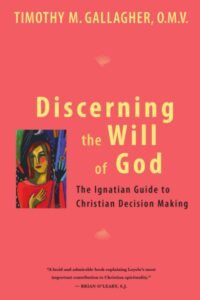
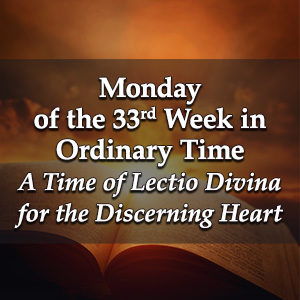 Monday of the Thirty-Third Week in Ordinary Time – A Time of Lectio Divina for the Discerning Heart Podcast
Monday of the Thirty-Third Week in Ordinary Time – A Time of Lectio Divina for the Discerning Heart Podcast

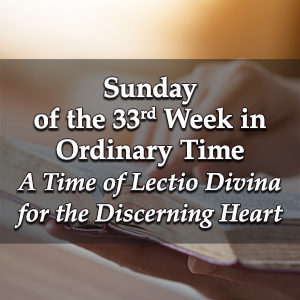 Sunday of the Thirty-Third Week in Ordinary Time – A Time of Lectio Divina for the Discerning Heart Podcast
Sunday of the Thirty-Third Week in Ordinary Time – A Time of Lectio Divina for the Discerning Heart Podcast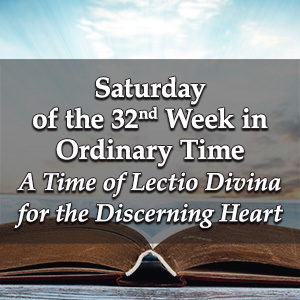 Saturday of the Thirty-Second Week in Ordinary Time – A Time of Lectio Divina for the Discerning Heart Podcast
Saturday of the Thirty-Second Week in Ordinary Time – A Time of Lectio Divina for the Discerning Heart Podcast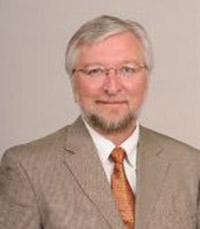
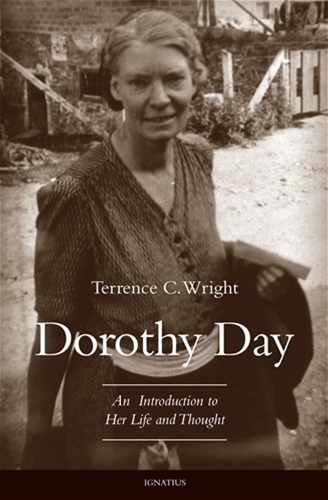
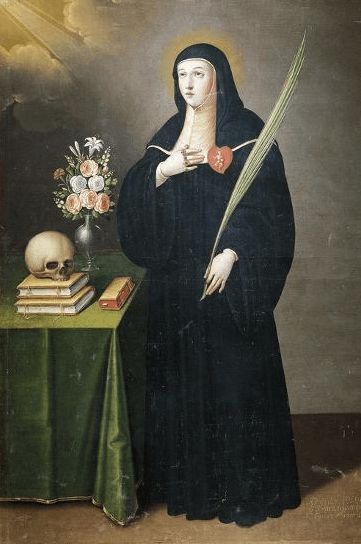
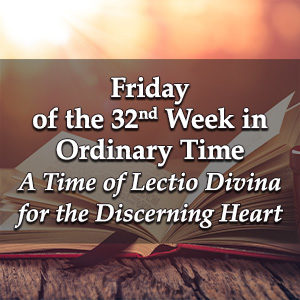 Friday of the Thirty-Second Week in Ordinary Time – A Time of Lectio Divina for the Discerning Heart Podcast
Friday of the Thirty-Second Week in Ordinary Time – A Time of Lectio Divina for the Discerning Heart Podcast